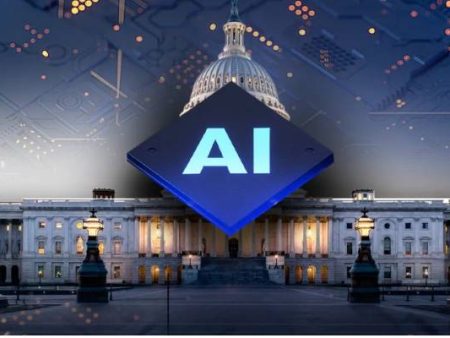Business consultants have long thrived on two pillars: expertise and storytelling. It’s not enough to know the numbers—you’ve got to make them come alive in a client boardroom.
For decades, this meant hours in PowerPoint, carefully choosing fonts, obsessing over charts, and building slide after slide. Consultants didn’t just deliver insight; they delivered it wrapped in sleek, visual polish.
But times are shifting. Enter AI presentation platforms. Suddenly, decks that used to take days can be generated in minutes. What used to be considered a premium service—clean, data-driven, client-ready slides—is becoming democratized.
Consultants now face a pressing question: how do they stay valuable when machines can do so much of their “visible work” faster and cheaper?
The Rise of AI in the Consultant’s Toolkit
First, let’s acknowledge just how powerful these tools have become. Canva, Beautiful.ai, Tome, Microsoft Copilot—they’re not fringe add-ons anymore.
They’re mainstream. You type in a prompt like “Strategy deck for a healthcare merger,” and you’ll get a sleek draft, complete with suggested storylines and visuals.
And it’s not just about design. Some platforms are integrated with data sources, able to auto-generate charts, recommend KPIs, or even summarize transcripts from client meetings.
This is no longer a matter of swapping templates. This is AI nudging its way into what consultants have long considered their domain.
Shifting Client Expectations
Clients aren’t blind to this. They know that tools exist to spin up polished decks quickly. That means they’re less likely to be impressed by aesthetics alone. The expectation is moving toward substance, speed, and strategic depth.
A C-suite executive may quietly wonder: “If AI can make slides this fast, what am I really paying a consultant for?” That’s both a threat and an opportunity.
The consultants who adapt can position themselves as guides through the flood of automation, showing clients how to use these tools effectively—while still delivering insights AI can’t.
Where Consultants Still Shine
Let’s be clear: AI isn’t ready to replace consultants outright. Why? Because consulting is as much about people as it is about numbers. AI doesn’t walk into a tense meeting and sense the undercurrent of anxiety in a leadership team.
It doesn’t negotiate conflicting visions between a CFO and a CMO. And it doesn’t craft political strategies for navigating board approval.
Consultants offer:
- Contextual judgment – Understanding not just what the data says, but what it means for a specific business culture.
- Relationship building – Gaining trust through conversation, presence, and listening.
- Storytelling beyond slides – Framing insights in ways that resonate emotionally.
AI might generate the skeleton, but consultants breathe life into it.
Why Gen Z Professionals Are Redefining Consulting
It’s worth noting how generational shifts play into this. Studies already show that why gen z professionals are adopting AI tools far more readily than their older peers.
They’ve grown up in a digital-first, automation-friendly environment. For them, using AI isn’t “cutting corners”—it’s working smart.
Within consulting, this creates an interesting dynamic. Younger consultants are quicker to blend AI outputs with their own insights, while more seasoned professionals may hesitate, fearing that reliance on AI erodes their value.
Over time, the Gen Z approach might become the new standard: not “man versus machine,” but “man plus machine.”
Lessons From Education: AI for Academic Presentations
The debate echoes what’s happening in schools and universities. With ai for academic presentations:, students can generate class decks at lightning speed. Professors are torn—some argue this stifles creativity, while others say it levels the playing field.
Consulting can learn from this. Just as students are expected to add interpretation and originality on top of AI outputs, consultants will be expected to add strategic insight and industry nuance beyond machine-generated decks.
The AI may handle the heavy lifting, but the human is accountable for the intellectual punch.
The Future of Investor Presentations
One of the most high-stakes moments for consultants is preparing the future of investor presentations for clients. These aren’t just routine decks—they’re make-or-break opportunities. Investors can spot fluff, sameness, or “AI polish” from a mile away.
Here, consultants provide irreplaceable value:
- Crafting a narrative that positions the company uniquely.
- Understanding investor psychology and tailoring the pitch accordingly.
- Coaching executives on delivery, tone, and even body language.
AI can create the deck. But consultants ensure it lands. That’s the difference between a decent pitch and a deal-closing one.
How Sales Teams Are Using AI
It’s not just consultants who are grappling with AI’s influence. The same tools are spreading fast across industries, especially in sales. Look at how sales teams are leveraging AI presentations:
- Generating personalized decks for prospects in minutes.
- Pulling in live CRM data to create updated reports.
- Automating follow-up summaries with next steps.
This has big implications for consultants. When clients can access sales decks of this caliber internally, they may rely less on consultants for low-level presentation work. Again, consultants will need to reposition themselves toward higher-value strategy and storytelling.
Risks of Over-Reliance on AI
Of course, we can’t ignore the risks. Consultants who lean too heavily on AI tools might run into:
- Homogenization: Decks start looking too similar, which erodes differentiation.
- Skill atrophy: Younger consultants may lose hands-on design skills if they rely only on AI.
- Trust issues: Clients may wonder how much of their billable hours reflect human thought versus machine automation.
These aren’t small concerns. They’re structural challenges the consulting industry will need to wrestle with.
A Hybrid Future
So what’s the path forward? The answer may lie in hybridity. Consultants and AI aren’t rivals—they’re collaborators. AI can generate first drafts, crunch data, and even propose structures. Consultants then refine, contextualize, and humanize.
This hybrid model also scales. Imagine a consultant using AI to create 10 variations of a strategy deck, then choosing the one that best fits the client’s voice. Or using AI to visualize complex scenarios instantly, freeing time for deeper analysis.
In this model, AI isn’t replacing consultants—it’s amplifying them.
Personal Take: Why the Human Touch Still Matters
From my perspective, the biggest risk isn’t that consultants will be replaced. It’s that consultants will forget what makes them unique. It’s easy to let AI handle more and more, but if consultants stop focusing on people—their motivations, fears, ambitions—they risk becoming irrelevant.
Consulting has always been part art, part science. AI can accelerate the science. But the art—the empathy, the intuition, the ability to walk into a chaotic boardroom and find calm—that’s human. And that’s irreplaceable.
Conclusion: Redefining Value in the AI Era
So, can AI presentation tools replace business consultants? No—but they can force consultants to rethink their value. The game is no longer about building the prettiest slides. It’s about offering insight, context, and storytelling that machines can’t replicate.
The consultants who adapt will thrive, using AI as an accelerant rather than a threat. Those who resist may find themselves outpaced—not by the machine itself, but by peers who learn to harness it.
At the end of the day, a deck is just a deck. What matters is the story it tells and the trust it builds. And for that, consultants will remain not just relevant, but indispensable.


